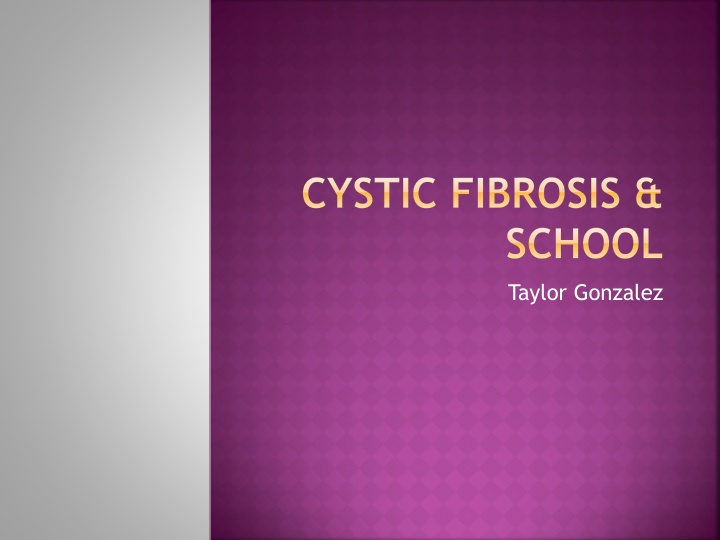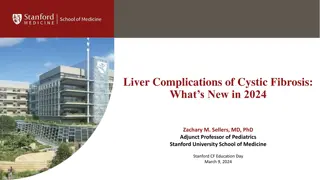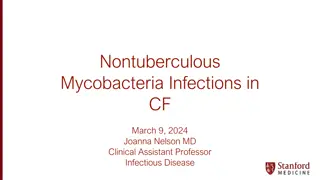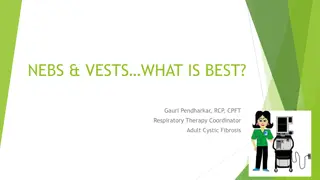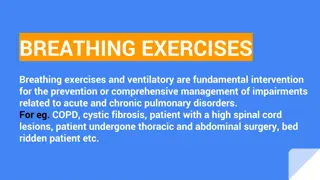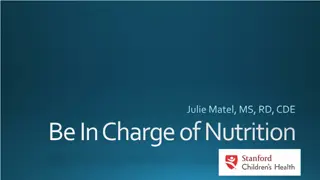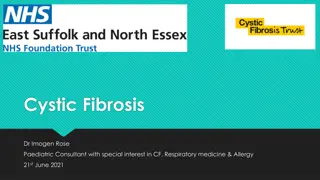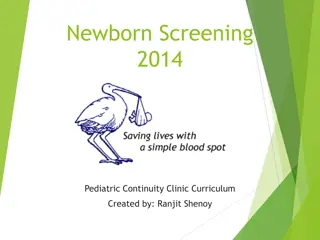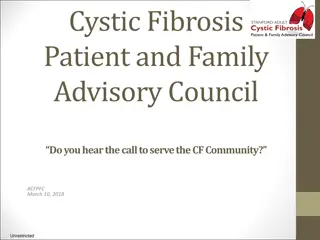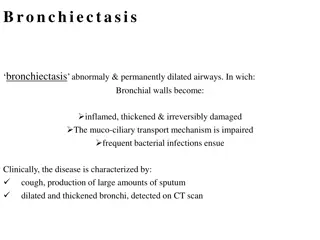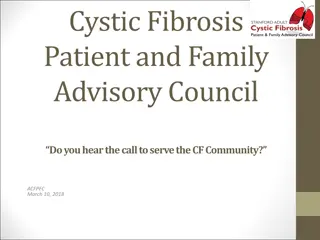CYSTIC FIBROSIS & SCHOOL
The impact of cystic fibrosis on students, this content delves into school expectations, challenges faced, and support strategies like IEPs and 504 Plans. It also clarifies the difference between these plans, offering insights on accommodations and modifications for student success.
Download Presentation

Please find below an Image/Link to download the presentation.
The content on the website is provided AS IS for your information and personal use only. It may not be sold, licensed, or shared on other websites without obtaining consent from the author.If you encounter any issues during the download, it is possible that the publisher has removed the file from their server.
You are allowed to download the files provided on this website for personal or commercial use, subject to the condition that they are used lawfully. All files are the property of their respective owners.
The content on the website is provided AS IS for your information and personal use only. It may not be sold, licensed, or shared on other websites without obtaining consent from the author.
E N D
Presentation Transcript
CYSTIC FIBROSIS & SCHOOL Taylor Gonzalez
WHAT DOES A SCHOOL NORMALLY EXPECT FROM STUDENTS?
HOW DOES CF AFFECT STUDENTS IN SCHOOL? Missing as much as 3 weeks of school due to hospitalizations and clinic visits May need to leave the classroom several times a day for a number of reasons including: To see the school nurse for medications/enzymes To use get water or cough in private To use the restroom due to stomach issues from lack of enzymes
HOW DOES CF AFFECT STUDENTS IN SCHOOL? Though exercise is great for the lungs, children may be limited in what they can do or how long they can do it.
WHAT CAN BE DONE TO HELP CHILDREN WITH CF? IDEA Section 504 of the Rehabilitation Act of 1973 Re-authorized in 2004 Requires schools to provide services to students with disabilities from birth through age 21 IEPs Requires schools to provide accommodations to students with disabilities 504 Plans
WHATS THE DIFFERENCE BETWEEN AN IEP AND A 504 PLAN? The disability must affect the child s educational performance and/or ability to learn and benefit from the general curriculum Example: Learning disability Accommodations or Modifications Disabilities whose impairment affects their ability to function in major life activities Examples: Chronic illnesses (asthma & CF) & disabling conditions (e.g. ADD) Accommodations IEP 504 Plan
ACCOMMODATIONS VS MODIFICATIONS Change how students learn and ways they can demonstrate what they have learned (How they are instructed and assessed) Expectations for student achievement do not have to change. Change what students are expected to learn and demonstrate Special diploma Accommodations Modifications
ACCOMMODATIONS 4 General Categories: Presentation Response Setting Scheduling Must: Be necessary Facilitate accurate demonstration of knowledge and skills Not provide an unfair advantage or compromise test validity Be the same for instruction and assessment situations
HOW DO I GET AN IEP OR 504 PLAN? Contact the school. It is best to do this at the start of each school year. Ask for the child to be evaluated under the IDEA or Section 504 of the Rehabilitation Act. Once a student qualifies for services, the school will hold a team meeting with the family to make an IEP or 504 plan.
HOW DO I GET AN IEP OR 504 PLAN? The plan says what the school will need to do to meet the child s needs. Decisions about accommodations and modifications are made by IEP team or Section 504 committee. Parents, ESE staff, basic or career and technical education teachers, and students 14 and older make up the IEP team or 504 committee.
IMPORTANT THINGS TO REMEMBER CF will often qualify a student for a 504 plan. Especially if the student misses several days of school or requires to have equipment with them in the classroom. However, the 504 plan (or IEP) MUST be in place before the child misses school or receives any type of accommodation.
THE NICE THING ABOUT TEAMWORK IS THAT YOU ALWAYS HAVE OTHERS ON YOUR SIDE. MARGARET CARTY
RESOURCES The CF Foundation: (800) FIGHT CF or info@cff.org Americans with Disabilities Act (ADA): (800) 514-0301 or www.usdoj.gov/disabilities.htm National Information Center for Children and Youth with Disabilities: www.nichcy.org Parent Advocacy Coalition for Educational Rights (PACER): (800) 537-2237) or www.pacer.org
